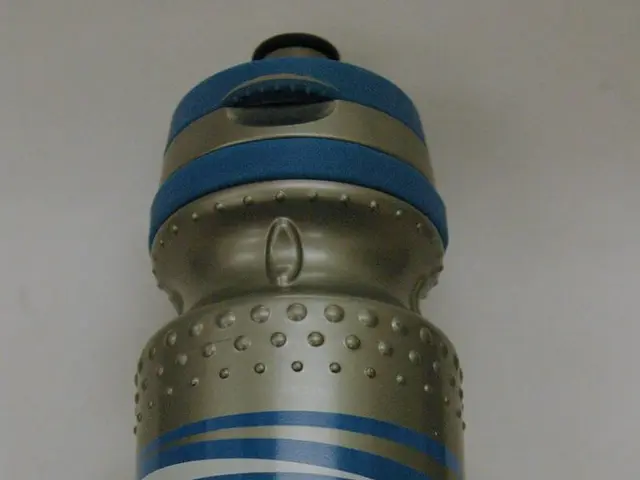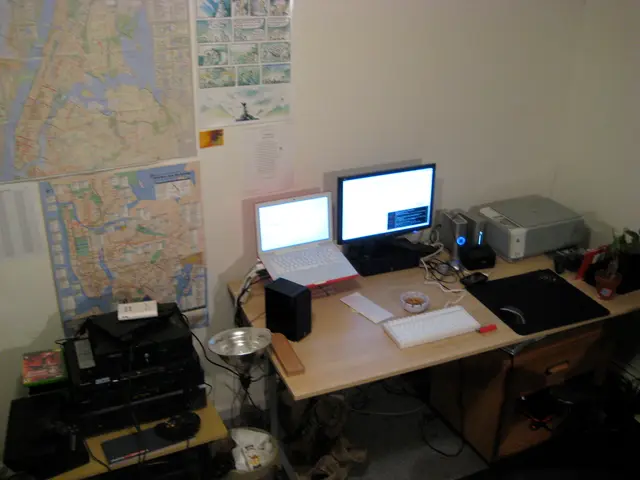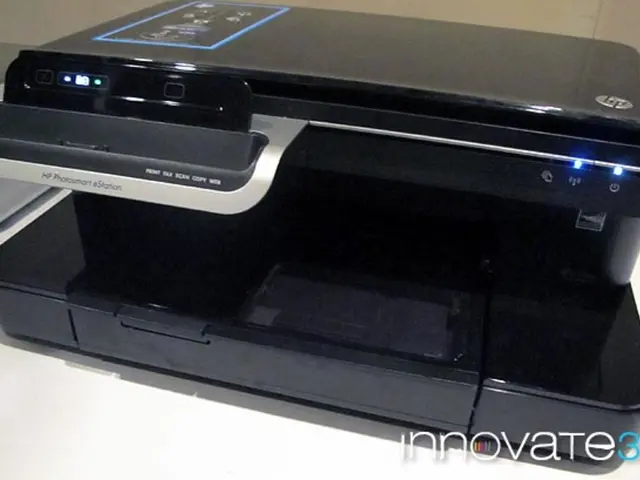Is it worthy to invest during a 30% decrease in Rigetti Computing's shares? Consider making a purchase to capitalize on the dip?
In 2022, Rigetti Computing's Aspen quantum computer became commercially available on AWS, marking a significant milestone in the world of quantum computing. Theoretically, quantum computers could be several orders of magnitude faster than traditional computers, revolutionising various fields. However, Rigetti's current market position faces significant challenges that cast doubt on its sustainability for long-term growth in the quantum computing industry.
Financial Struggles and Technological Progress
In Q2 2025, Rigetti reported a net loss of $39.7 million on only $1.8 million in revenue, continuing a trend of declining sales. The company's profit margin is deeply negative, and price-to-sales ratios indicate significant overvaluation in the market. Despite these challenges, Rigetti has made technological advancements, with plans for a 100+ qubit quantum computer and the release of the Ankaa-3 system with improved error rates.
Rigetti's financial struggles are somewhat mitigated by strong cash reserves. The company raised $350 million through equity offerings and holds $575 million in cash and short-term investments with no debt as of mid-2025. However, this financial cushion depends on reversing revenue declines to support long-term sustainability.
Competitive Landscape and Investor Sentiment
Competitors such as D-Wave and IonQ are also making strides in real-world quantum utility and commercial traction. Some with notable breakthrough claims and distinct technologies pose a significant threat to Rigetti's market position.
Investor sentiment towards Rigetti has been volatile. Moments of investor enthusiasm, often tied to technological milestones, have led to sharp stock price gains. However, recent market reactions have been negative due to financial setbacks and insider selling that may suggest leadership concerns about short-term recovery.
The Road Ahead
While Rigetti demonstrates promising quantum technology development, its ongoing heavy losses, shrinking revenue base, and competitive pressures present major hurdles. The company's long-term growth sustainability hinges critically on its ability to convert technological progress into commercial revenue and manage finances prudently.
Given the quantum computing industry's infancy, significant risk remains until practical, scalable applications drive consistent income and profitability. If quantum computing proves to be a viable mainstream technology and Rigetti maintains a technology lead, it could be a home run for patient investors. However, if things don't go well, Rigetti's stock could go to zero.
Rigetti sees a potential market for quantum computing to be in the $1 billion to $2 billion range by 2030. The company has 237 issued or pending patents on its technology and aims to build quantum computing systems accessible through the cloud. Rigetti believes the market opportunity for quantum computing could grow to well over $100 billion by 2040.
However, Rigetti is mostly a pre-revenue company, and it may need to raise additional capital to fund its development. It's worth noting that Rigetti isn't the only company working on quantum computing; big players like Alphabet are also developing quantum computing technology. As with any investment, it would be wise to only invest money you can afford to lose if things don't work out.
As of this writing, Rigetti's stock is trading for about 30% below its all-time high, reflecting the current market sentiment. Rigetti demonstrated its first scalable quantum chip in 2021, and it launched its first 32-qubit system on Amazon Web Services in 2019. Rigetti has started to gain early-stage commercial traction through partnerships with governments and other customers.
In conclusion, Rigetti Computing's journey in the quantum computing industry is fraught with challenges, but it also presents opportunities for those willing to take calculated risks. The road ahead is uncertain, but for those who believe in the potential of quantum computing, Rigetti could be a promising investment, provided it can navigate its financial and competitive hurdles effectively.
- Rigetti's continual investments in technology, such as planning a 100+ qubit quantum computer and Ankaa-3 system with improved error rates, are occurring alongside financial challenges like heavy losses and shrinking revenue.
- In the quantum computing industry, Rigetti faces competition from companies like D-Wave and IonQ, posing a threat to its market position due to their real-world quantum utility and commercial traction.
- As Rigetti moves forward, its ability to convert technological advancements into commercial revenue and manage finances carefully will significantly impact its long-term growth sustainability in the rapidly evolving world of quantum computing.




